-
National Guard units help states ward off cyberattacks
Governors across the United States are mobilizing their states’ National Guard units to combat threats from cyberattacks. The state of Washington was the first state to assign the state’s National Guard cybersecurity responsibilities. The state recognized the potential of its National Guard as a cyberforce when it realized that many of its soldiers, who are full-time employees and part-time soldiers, worked for tech employers such as Google, Boeing, Cisco, Verizon, and Microsoft.
-
-
Eco-terrorist sentenced to five years and ordered to read Malcolm Gladwell’s book
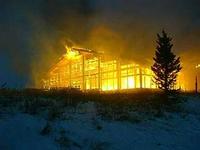
Last Monday, Chief U.S. District Judge Ann Aiken imposed a 5-year sentence on radical environmental activist Rebecca Rubin for her involvement in several acts of arson, including the burning of Vail Colorado’s Twin Elks Lodge which caused millions of dollars in damage. Rubin spent almost eight years living underground, giving herself up to the FBI last October. She pleaded guilty to arson, attempted arson, and conspiracy to commit arson in connection with a radical environmental group calling itself The Family. Judge Aiken also ordered Rubin to read Malcolm Gladwell’s 2013 book David and Goliath, explaining that Rubin might learn a thing or two about non-violent environmental advocacy while serving her sentence.
-
-
Barrier technology strengthens protection at Navy ports
Advanced technology rules the day in modern warfare — yet one very real threat to the U.S. Navy comes from a simple but deadly enemy strategy: small speed boats laden with explosives ramming into ships in harbor. Now a new maritime security barrier, developed with support from the Office of Naval Research (ONR), could provide a quantum leap in existing sea-port protection.
-
-
U.S. will seek death penalty for Dzhokhar Tsarnaev
The U.S. Justice Department announced that the United States will seek the death penalty against Dzhokhar Tsarnaev, the 20-year-old accused of detonating two bombs the Boston Marathon last Aril, killing three people and injuring more than 200 others. The younger Tsarnaev faces thirty counts in the bombing, including use of a weapon of mass destruction resulting in death and the bombing of a public place. Since 1964, the federal government has only executed three people, including Timothy McVeigh who was convicted in the 1995 Oklahoma City bombing.
-
-
Report: 60 percent increase in terrorism in “arc of instability” across North Africa, Sahel
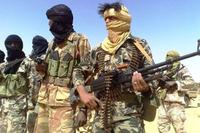
North Africa and the Sahel region have witnessed an alarming increase in terrorist activities – a 60 percent increase in 2013 over the previous year. Extremist formations and their associates, such as Al-Qaeda in the Islamic Maghreb (AQIM), Boko Haram, Ansaru, Ansar Dine, Ansar Al-Sharia, the Movement for Oneness and Jihad in West Africa (MUJAO), al-Mourabitoun, the National Movement for the Liberation of Azawad (MLNA), Al-Shabaab, and militant recruits from the Polisario-run refugee camps and other displaced persons have been active in Libya, Algeria, Mali, and Tunisia, but also in countries neighboring on the region, from Kenya and Somalia in the east, through Chad and the Central African Republic, to Niger, Nigeria, and Mauritania in the west.
-
-
A first: Constitutionality of NSA warrantless surveillance challenged by terrorism suspect
Jamshid Muhtorov, a refugee from Uzbekistan now facing terrorism charges in Colorado, is the first criminal defendant who, as part of his lawyers’ defense strategy, is challenging the constitutionality of the NSA’s warrantless surveillance program. Muhtorov filed a motion Wednesday in federal court in Denver to suppress any evidence obtained through the agency’s surveillance program on grounds that it was unlawful. In July 2013 the Justice Department reversed an earlier policy, and now informs defendants whether the case against them, in whole or in part, is based on information obtained through warrantless surveillance. To date, six months after the review process at Justice was launched, Muhtorov and Mohamed Mohamud, a Portland, Oregon teenager who had been convicted after an FBI sting operation of attempting to detonate a bomb at a Christmas tree lighting ceremony, are the only defendants to receive such a disclosure.
-
-
New anthrax-killing virus could offer new ways to detect, treat, and decontaminate anthrax bacillus
From a zebra carcass on the plains of Namibia in Southern Africa, researchers have discovered a new, unusually large virus (or bacteriophage) which infects the bacterium that causes anthrax. The novel bacteriophage could eventually open up new ways to detect, treat, or decontaminate the anthrax bacillus and its relatives that cause food poisoning. Bacteriophages are often highly specific to a particular strain of bacteria, and when they were first discovered in the early twentieth century there was strong interest in them as antimicrobial agents. The discovery of penicillin and other antibiotics, however, eclipsed phage treatments in the West, although research continued in the Soviet Union.
-
-
U.S. weapons shipped to moderate Syrian rebels after secret congressional approval
U.S. and European sources have confirmed that U.S.-manufactured light arm have been flowing to moderate Syrian rebels in the south of Syria, and that Congress has approved funding to continue the shipments for the next few months. The weapons, which are being delivered to the rebels through Jordan, include both light arms and heavier weapons such as anti-tank rockets. The shipments, however, do not include shoulder-fired anti-aircraft missiles.
-
-
Israeli jets destroy Hezbollah-bound advanced Russian missiles stored near Latakia
Large warehouses near the port city of Latakia, where the Assad regime stored advanced Russian missiles before shipping them to Hezbollah, were destroyed by aerial attack late Sunday. Israel has already launched six attacks in 2013 on Syrian arms shipments to Hezbollah — on 30 January, 3 May, 5 May, 5 July, 18 October, and 30 October. The attack on 5 July was on storage facilities in the same Latakia area, where Syria kept a large quantity of advanced P-800 Oniks anti-ship missiles, also called Yakhont missiles. Three weeks after the attack, U.S. sources said that the attack did not succeed in wiping out all of the missiles. “American officials said that further Israeli strikes are likely,” the New York Times reported on 31 July.
-
-
Russia imposes strict security measures on the Sochi region
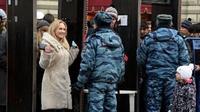
In preparation for the 2014 Winter Olympics in the Black Sea resort city of Sochi, Russian authorities have been increasing security measures to discourage Islamist militants who have threatened to disrupt the games with “all means that Allah allows.” More than 70,000 soldiers and police officers will guard the Olympic facilities and the sprawling city of Sochi. In addition, Russia will be using SORM (System for Operative Investigative Activities) to monitor every mobile telephone call, e-mail, SMS, and Internet chats originating from or going into the Sochi region during the Games.
-
-
Value of list of state sponsors of terrorism questioned
The U.S. list of State Sponsors of Terrorism, created in 1979, originally included Libya, Iraq, South Yemen, and Syria. Cuba was added in 1982, Iran in 1984, North Korea in 1988, and Sudan in 1993. The list currently contains four countries — Cuba, Iran, Sudan, and Syria. Experts question the value of the list, since the four countries listed are not the only countries that currently support, engage in, or ignore acts of terrorism, according to news reports from the State Department, and the inclusion of Cuba has more to do with U.S. domestic politics than Cuba’s current policies, as the State Department’s 2012 Country Report on Terrorismconcluded that “There was no indication that the Cuban government provided weapons or paramilitary training to terrorist groups.”
-
-
Israel facing a growing al-Qaeda challenge
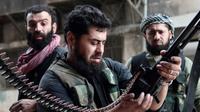
What appears to be the first al Qaeda plot against targets inside Israel was thwarted last December when the Israeli security services arrested three Palestinians — two of them East Jerusalem residents with Israeli identification cards — who planned simultaneous attacks on the International Conference Center in Jerusalem and the U.S. embassy in Tel Aviv. The three men were arrested on 25 December, but a court-ordered gag order was lifted last Wednesday. Analysts say that the growing influence of al Qaeda affiliates in Iraq and Syria, the foothold the organization has gained in the Sinai Peninsula, and the growing presence of Salafists in the West Bank, made it only a question of time before al-Qaeda-inspired terrorist acts against Israeli targets would be hatched.
-
-
U.K. terror suspects protected by anonymity rules
Two U.K. terror suspects – one an al-Qaeda recruiter, the other involved in the Nairobi shopping mall attack last year – escaped British detention in 2007, but are still protected by court-imposed anonymity orders. Seven men suspected of terrorism will be released into the community in the next few weeks when the control measures restricting their movements expire. These men, too, will benefit from court-ordered anonymity. Security experts say that as is the case with two suspects who absconded in 2007, some or all of the seven terrorism suspects will be in a position to evade surveillance by using their anonymity.
-
-
Florida teenager faces bioterrorism charges
Jesse Korff, 19, of Labelle, Florida is facing federal charges in New Jersey for selling poison through a black marketplace on the underground Internet. Law enforcement says from November 2013 through 15 January this year, Korff produced, stockpiled, and sold abrin for use as a weapon. The Center for Disease Control and Prevention (CDC) considers abrin, which is extracted from the seeds of the rosary pea plant, a subset of biological agents and toxins posing a threat to public health and safety. Small doses of abrin are potentially lethal to humans if ingested, inhaled, or injected.
-
-
Foreign jihadists in Syria encouraged to return home to engage in terrorism
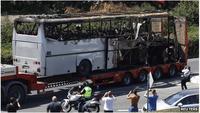
Thousands of foreign fighters are traveling to Syria to fight the Syrian government in the country’s civil war. About 500 of those are from Britain, and many of these individuals are already known to British intelligence service, MI5. One British Muslim who had joined ISIS but then defected, says many of those Britons, along with other Europeans and Americans, are being trained as jihadists and then encouraged by their trainers to return home to launch terrorist attacks. Manuel Valls, France’s interior minister, said jihadists are the “biggest threat that the country faces in the coming years.”
-
More headlines
The long view
How Male Grievance Fuels Radicalization and Extremist Violence
Social extremism is evolving in reach and form. While traditional racial supremacy ideologies remain, contemporary movements are now often fueled by something more personal and emotionally resonant: male grievance.
